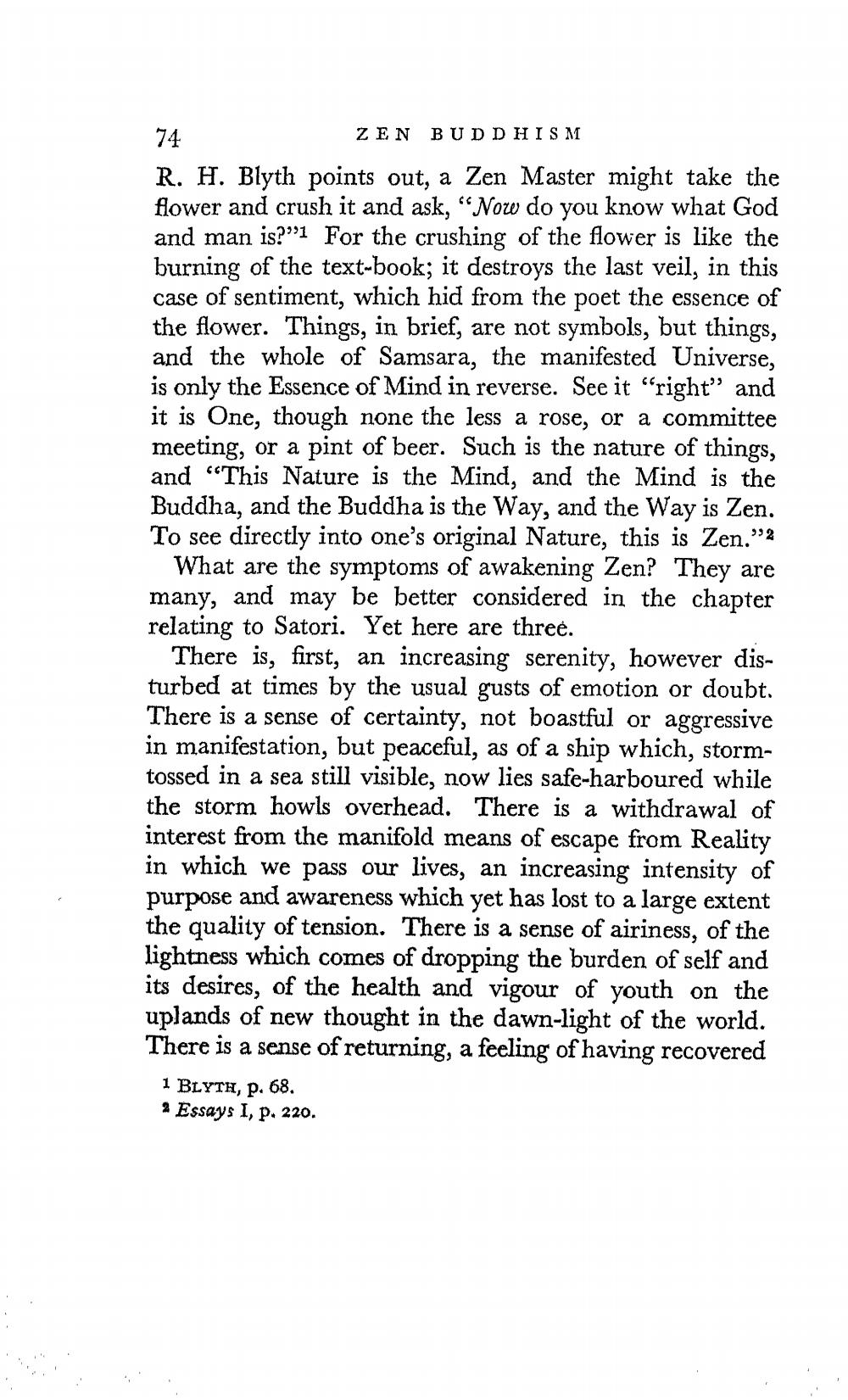________________
74
ZEN BUDDHISM R. H. Blyth points out, a Zen Master might take the flower and crush it and ask, “Now do you know what God and man is?”1 For the crushing of the flower is like the burning of the text-book; it destroys the last veil, in this case of sentiment, which hid from the poet the essence of the flower. Things, in brief, are not symbols, but things, and the whole of Samsara, the manifested Universe, is only the Essence of Mind in reverse. See it "right and it is One, though none the less a rose, or a committee meeting, or a pint of beer. Such is the nature of things, and “This Nature is the Mind, and the Mind is the Buddha, and the Buddha is the Way, and the Way is Zen. To see directly into one's original Nature, this is Zen.”2
What are the symptoms of awakening Zen? They are many, and may be better considered in the chapter relating to Satori. Yet here are three.
There is, first, an increasing serenity, however disturbed at times by the usual gusts of emotion or doubt. There is a sense of certainty, not boastful or aggressive in manifestation, but peaceful, as of a ship which, stormtossed in a sea still visible, now lies safe-harboured while the storm howls overhead. There is a withdrawal of interest from the manifold means of escape from Reality in which we pass our lives, an increasing intensity of purpose and awareness which yet has lost to a large extent the quality of tension. There is a sense of airiness, of the lightness which comes of dropping the burden of self and its desires, of the health and vigour of youth on the uplands of new thought in the dawn-light of the world. There is a sense of returning, a feeling of having recovered 1 BLYTH, P. 68. 2 Essays I, p. 220.




